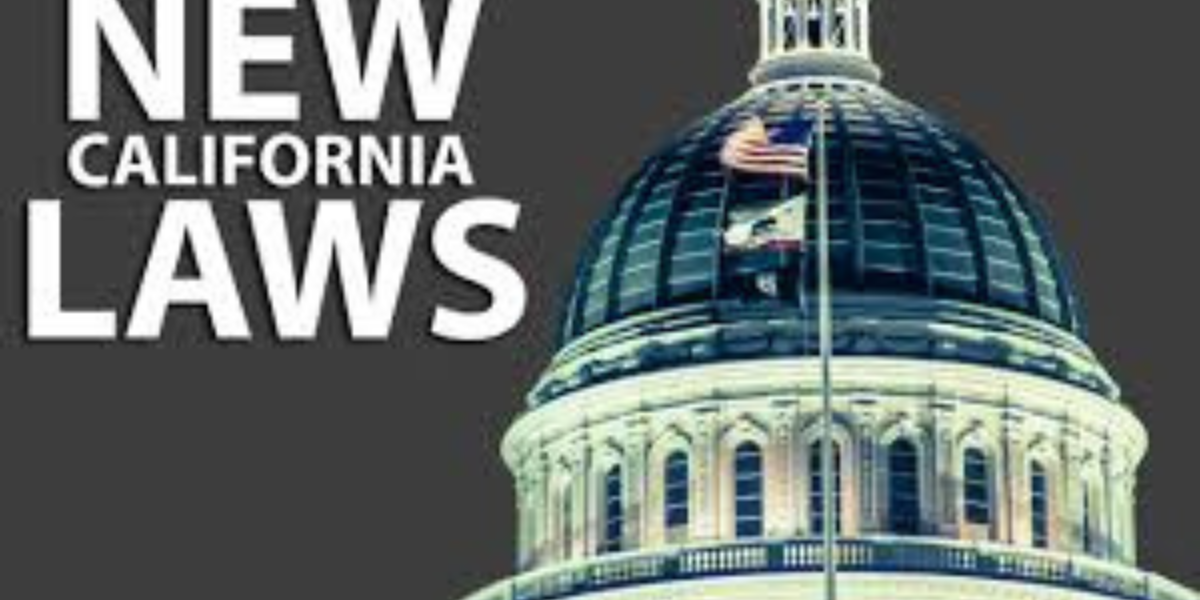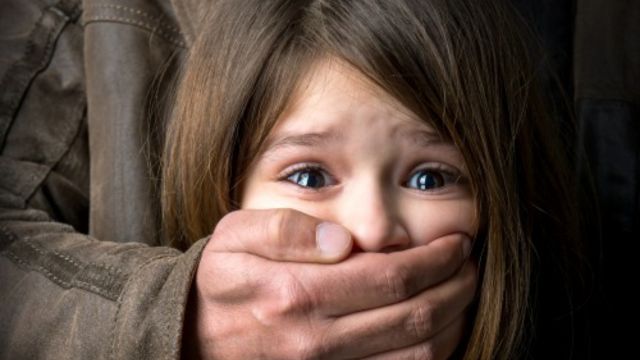Scores of new California laws are going into effect in 2025 after Gov. Gavin Newsom took action on hundreds of bills that crossed his desk last year.
Among the legislation Newsom signed into law were bills to crack down on retail crime and property theft; to address homelessness; and new protections for consumers and patients. Newsom also vetoed high-profile measure that would have helped immigrants in the country illegally purchase homes in the state and a first-in-the-nation bill to implement artificial intelligence safety measures.
Here’s what to know about California’s most notable new laws and how they’ll affect you.
Cracking down on retail crime, property theft
Nearly a dozen bills signed into law by Gov. Gavin Newsom in August are now in effect to crack down on retail theft and property crimes across the state.
These new laws include measures to create harsher penalties for retail and property theft convictions; to make it easier for suspects of retail and vehicle theft to be arrested and prosecuted; to make the California Highway Patrol organized retail crime task force permanent; to implement new penalties for thieves who cause damage to businesses; and to crack down on people who sell and exchange stolen goods online.
California also now mandates harsher sentences for smash-and-grab robberies that result in major theft and damages.
Newsom signed this series of bills just months before California voters overwhelmingly decided to pass the high-profile Proposition 36 and, in turn, rolled back parts of Proposition 47. Newsom had been a supporter of the decade-old Proposition 47 and was clear about his opposition to Proposition 36 in the lead-up to the election, calling it a return to the war on drugs.
While Proposition 47 was created with the intent of reducing the state’s prison population by changing some felony offenses to misdemeanors, Proposition 36 increases penalties for certain drug and theft crimes. It went into effect in mid-December.
Ban on gender notification policies in schools
California now prohibits school districts from notifying parents if their child uses new pronouns or changes their gender identity or expression under the Support Academic Futures and Educators for Today’s Youth Act, or SAFETY Act.
The last year saw a nationwide debate over local school districts and the rights of parents and LGBTQ+ students.
One Northern California school district sued the state in 2024 over allegations the district failed to carry out corrective actions in a gender notification policy it adopted the year prior.
Updating public school curriculum on Native Americans
This year, the California Department of Education must meet with tribes when it updates its history or social studies curriculum to include instruction for elementary, middle or high school students on the mistreatment and contributions of Native Americans.
The curriculum will be taught to students as part of their instruction on Spanish colonization and the gold rush period.
Prohibiting public libraries from banning books
The California Freedom to Act, or Assembly Bill 1825, prohibits public libraries that receive state funding from banning books based on race, nationality, religion, gender identity, sexual orientation, disability or political affiliation. Libraries also can’t ban books based on the author or the book’s intended audience.
Addressing homelessness, expanding housing
Senate Bill 1037 aims to crack down on local governments that block or delay approved housing. The bill signed into law by Newsom allows penalties of up to $50,000 per month, funds that will go toward supporting affordable housing in areas where the local government blocked or delayed the approved housing.
Assembly Bill 2835 will allow cities to continue to use available space in hotels and motels to supplement the number of homeless shelter beds in their communities.
Assembly Bill 3039 updates rules for cities and counties that must plan for housing needs, including low and extremely low-income households.
Assembly Bill 3057 aims to make developing Junior Accessory Dwelling Units a little easier. Commonly known as “granny” or “in-law” units, the law comes amid efforts by several communities across the state to increase housing options.
New worker protections
Enacted in 2021, Senate Bill 639 put a ticking clock on permits issued to industries that allowed them to hire employees who are mentally or physically disabled for less than standard minimum wage. As of Jan. 1, the law will take full effect and those permits will be fully phased out.
Farmworks can take sick leave when certain weather conditions are too hazardous to work. Senate Bill 1105 now prohibits employers from denying agriculture workers sick time requests when there’s a local emergency declaration due to smoke, heat or flooding.
Freelancers will now be guaranteed written agreements and timely payments if the work is more than $250 under Senate Bill 988. The hiring party must keep the contract for at least four years.
Employers can no longer require an applicant to have a driver’s license unless the job requires driving under Senate Bill 1100.
Grocery stores and pharmacies must notify their employees and the community that they will be closing 45 days in advance via a written notice if the store employs more than five people, thanks to Senate Bill 1089. For stores with fewer than five employees, a written notice must be issued at least 30 days before closing. The bill aims to help address good deserts that affect low-income families.
Preventing most medical debt from affecting credit reports
California now prohibits most medical bills from affecting consumer credit scores.
Passed in September and signed into law by Newsom, Senate Bill 1061 bars credit reporting agencies from including unpaid medical debt on consumer credit reports. Debt owed for cosmetic procedures is not included under this new law.
In addition, California will begin requiring later this year that contracts that create medical debt include language explaining those new provisions.
Increasing liability insurance coverage
Under Senate Bill 1107, the minimum liability insurance coverage for California drivers increases to $30,000 for bodily injury or death of one person, $60,000 for bodily injury or death of all persons and $15,000 for damage to property. Previous minimums were $15,000, $30,000 and $5,000 for those respective categories.
Eliminating tolls for pedestrians, cyclists
Assembly Bill 2669 prohibits pedestrians and cyclists from being charged a toll for bridges owned by the state unless the bridge is under construction on or after Jan. 1, 2025. Funds from tolls will be used to fund construction costs.
Preventing parking near crosswalks
The “daylighting” law, or Assembly Bill 413, bans parking within 20 feet of a marked or unmarked crosswalk. The law mandates that jurisdictions may only issue warnings before Jan. 1 But as soon as March 1, a motorist in violation could be fined $65, plus a $12.50 state-mandated administrative fee.
Sideshow crackdown
The governor also signed a series of bills aimed at strengthening penalties and increasing accountability for people who participate in sideshows.
Assembly Bill 1978 allows law enforcement to impound a vehicle without taking the driver into custody for blocking a highway or parking lots for races.
Assembly Bill 2186 expands impounding vehicles used in an exhibition of speed in a parking lot. It builds off existing law that allows for vehicles to be impounded for up to 30 days if a driver participates in an exhibition of speed on a highway. Assembly Bill 3085 expands the list of offenses that allow law enforcement to impound a vehicle.
Closing the “locked door loophole”
Senate Bill 905 aims to close a loophole in the law that requires those whose cars have been broken into to prove that all their doors were locked.
Previously, even if the car had a broken window, prosecutors had to prove that the car door was locked in order to convict an auto burglary suspect.
Tougher penalties for soliciting, buying sex from minors
Current state law limits penalties for soliciting a minor to a misdemeanor charge. This new law will make it a felony if the victim is under 16 and allows prosecutors to charge repeat offenders with a felony if the victims are at least 16 years old.
Helping Holocaust survivors recover stolen property
Assembly Bill 2867 will help Holocaust survivors living in California to recover stolen art or other personal property. The law came in response to a Ninth Circuit Court of Appeals ruling that allowed for Spanish law to be applied instead of California law in the case of a looted artwork being displayed at a museum in Spain. The Spanish museum got to keep the artwork, prompting public outcry.
The law will also apply to art or other personal property stolen during other acts of genocide or persecution.
Combating deepfakes, celebrity digital clones
California has new protections for the entertainment industry related to the growing use of artificial intelligence.
The state now requires that contracts for actors and other performers contain language regarding AI uses of their image, likeness or voice.
Additionally, permission to use the likeness, image or voice of a deceased entertainer for AI replicas must be granted by the individual’s estate.
Demi Lovato’s child influencer financial security bills
Singer and former child star Demi Lovato was a driving force behind the passing of two laws that aim to protect the financial well-being of child influences.
Senate Bill 764 and AB 1880 were jointly signed into law. One, SB 764, mandates that parents or guardians set aside a certain percentage of earnings for minors who get used in monetized online content. The other, AB 1880, expands the Coogan Law to include child influencers.
Protections for teens in youth residential treatment facilities
The Paris Hilton-championed Senate Bill 1043 now requires the California Department of Social Services to notify parents or guardians and note on their website whenever patients at youth residential treatment facilities are placed in restraints.
Cannabis cafes
Assembly Bill 1775 will allow for cannabis cafes that offer food, coffee and live entertainment. Legislators argued the bill will help struggling downtown areas after the pandemic.
Cities including West Hollywood, San Francisco and Sacramento have already given the green light for this type of business.







